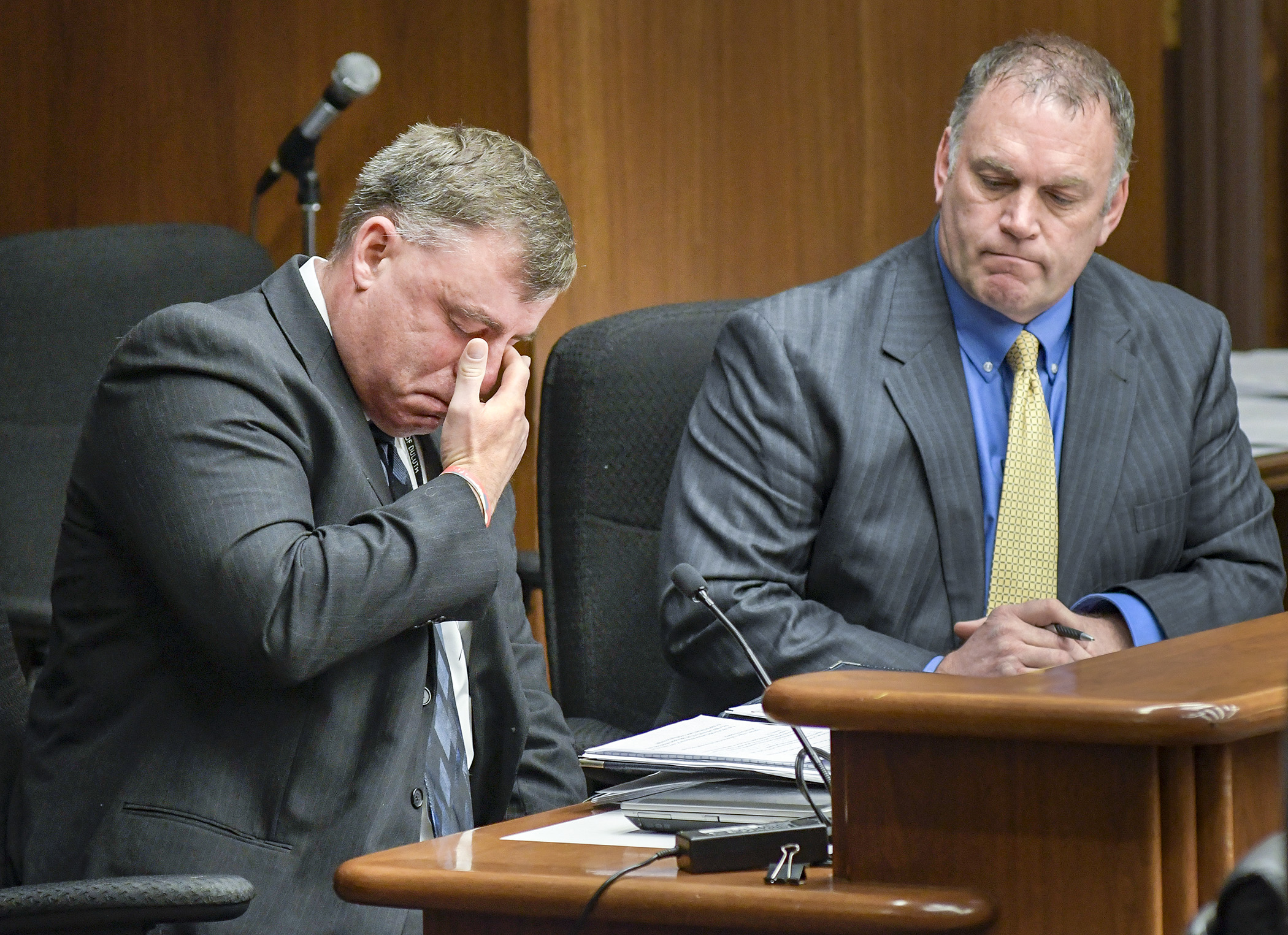Bipartisan push for ‘penny a pill’ on Opioid Awareness Day

A bill from Rep. Dave Baker (R-Willmar) would charge prescription opioid manufacturers money in order to help fund efforts to combat the opioid crisis.
The House Health and Human Services Reform Committee laid over HF1440 Thursday, but the packed hearing did provide a forum for powerful testimony.
Dozens watched as several testifiers broke down in tears while recounting how the opioid crisis has impacted them, including the mother of a dead prescription opioid user and a Duluth police lieutenant whose department has had to beg for money from the community to fund Narcan kits, used to treat overdoses, for its officers.
The bill would require an “Opioid Stewardship Fee,” more commonly known as the “penny-a-pill” proposal. It would set up reporting requirements that make drug manufacturers disclose every sale, delivery or prescription of a controlled substance in Minnesota.
It would also direct funds collected from opioid sales to grants for EMS programs and purchasing overdose drugs for paramedics and police. A 5 percent Medical Assistance rate increase for opioid treatment programs is included.
The base fee to drug companies is 1 cent per tablet, but the proposal would charge more for particularly strong opioids like fentanyl, methadone, hydromorphone and oxycodone. For example, the charge for fentanyl is multiplied by a factor of 20.
The bill specifies that a portion of the proceeds from the penny fee go to county social services to help children in out-of-home placement after opioid problems in their households. Another portion would be allocated for counties to prevent and treat opioid addiction.
Drugs used to treat opioid dependence would be exempt.
Rep. Joe Schomacker (R-Luverne), the committee chair, did not indicate Thursday when it would take up HF1440 again. The companion, SF730, is sponsored by Sen. Julie Rosen (R-Vernon Center) and awaits action by the Senate Health and Human Services Finance and Policy Committee.
Related Articles
Search Session Daily
Advanced Search OptionsPriority Dailies
Legislative leaders set 2026 committee deadlines
By Lisa Kaczke Legislative leaders on Tuesday officially set the timeline for getting bills through the committee process during the upcoming 2026 session.
Here are the three deadlines for...
Legislative leaders on Tuesday officially set the timeline for getting bills through the committee process during the upcoming 2026 session.
Here are the three deadlines for...